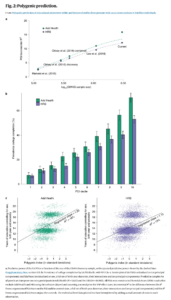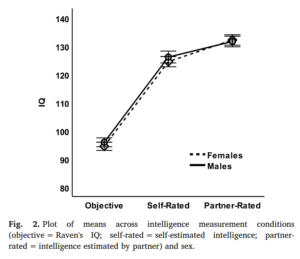Rindermann (Cognitive Capitalism, 2018) writes:
Contradicting common beliefs, National Socialists were opposed to intelligence research (Becker, 1938; Jaensch, 1938): in their view, intelligence research would represent a ‘supremacy of Bourgeoisie spirit’ (Jaensch, 1938, p. 2); intelligence measurement would be an instrument ‘of Jewry’ to ‘fortify its hegemony’ (p. 3); selection in schools according to intelligence would stand for a ‘system of examination of Jewish origin’ (p. 4), especially the concept of intelligence as a ‘one-dimensional dimension’ (p. 3) and ‘one common central factor’ (Becker, 1938, p. 24). Because people differ and therefore intelligence differs (p. 4) they called for an ‘intelligence measurement according to a national and typological point of view’ (p. 15); for Germans they asked for a measurement of ‘realism’, ‘conscientiousness’ and ‘actually of the character value of intelligence’. They were opposed to a measurement solely of ‘theoretical intelligence’, of ‘intellectualism’ (Becker, 1938, p. 22); instead they favoured ‘practical intelligence’ (p. 18) that should be measured. Nazi researchers were opposed to the methods of correlation and factor analysis (p. 23f.); general intelligence did not exist: ‘In fact there is no general, qualitatively comparable and from type independent intelligence.’ (Jaensch, 1938, p. 4)
If the term ‘Jewish’ were exchanged for ‘dominant class’ we would have the same critique as mentioned by Bourdieu, only 40 years earlier and developed by the National Socialists. And the critique from the ‘left’ of today against cross-cultural intelligence comparisons, incomparability, bias, g factor etc. was also first mentioned by the National Socialists.
Of cause, this is all scientifically irrelevant, because statements cannot be disproved by showing who has said something too, before, simultaneously or later. Only logic, empirical data and content-based arguments count. If ‘Jews’ (or gentiles), ‘ruling classes’ (or suppressed people), ‘Capitalists’ (or workers), ‘Whites’, ‘Europeans’ (or Africans) or somebody else benefits from intelligence or intelligence research, this does not make any statement more or less wrong or correct. It is true that in modernity and in at least partly meritoric societies the ‘upper classes’ have on average higher intelligence (intelligence helps to climb the social ladder; Deary et al., 2005; Saunders, 1997), and that ‘Whites’, ‘Europeans’, and ‘Jews’ have higher average intelligence and that ‘Jews’ are outstandingly represented in research including intelligence, but does this change the veridicality of statements?27 If something like the intelligence concept is rejected due to ethnic or social contexts, with the same argument it would be possible to reject money, books, psychology or science itself. Scientific (epistemic) statements have to be evaluated by their approximation to truth and finding new truth. Political, ideological or ethical criteria cannot substitute criteria of truth.
Similar to National Socialism, in Communism intelligence research was condemned. Alexander Luria was unable to publish his pioneering cross-cultural study on cognitive ability before 1974, which he conducted four decades earlier in the 1930s in Uzbekistan.
It seems to be that once again les extrêmes se touchent, here in the National Socialist and Communist opposition against intelligence research. And it is another hint that intelligence is a civic-burgher phenomenon.
Here of course the attentive reader will note the parallel to Robert Sternberg’s thinking about intelligence: deny g factor/one dimension, assert importance of practical intelligence beyond theoretical (academic) intelligence. I don’t see any mention of the part of his trio successful intelligence, but maybe if one looked at the sources. The two German sources given are:
- Jaensch, E. R. (1938). Grundsätze fur Auslese, Intelligenzprüfung und ihre praktische Verwirklichung. [Principles for selection, intelligence measurement and its application.] Zeitschrift für angewandte Psychologie und Charakterkunde, 55, 1–14.
- Becker, F. (1938). Die Intelligenzprüfung unter völkischem und typologischem Gesichtspunkt. [Intelligence measurement from a national and typological point of view.] Zeitschrift für angewandte Psychologie und Charakterkunde, 55, 15–111.
People:
- German Wiki: https://de.wikipedia.org/wiki/Erich_Rudolf_Jaensch
- Becker, Friedrich. I didn’t find any online bibliography


